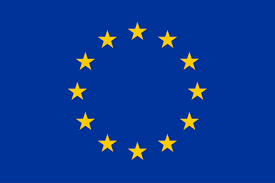Two Bristol area firms – a food exporter and a manufacturer – have reacted with alarm at the prospect of the UK leaving the single market and customs union.
Both firms are considering their future days after Article 50 was formerly triggered. One could close completely if tariffs and more paperwork are introduced while the other is looking into relocating away from the UK. 
Bosses of the two firms wished to remain anonymous and their comments here are based on their responses to the latest survey conducted by Business West, the region’s largest business organisation.
Food exporter: Bristol
I think the imposition of tariffs and customs paperwork will sound the death knell for my business, which is 100% export to Europe. Some of my customers re-export to the Middle East and I suspect they will buy from the remaining EU countries and not from the UK.
I was in the export business before the single market and the customs paperwork was burdensome. On regulatory issues, I think the UK will retain much of the EU legislation, at least in the early years, so I don’t foresee an immediate change.
No decisions [have been] made yet but as I work on my own and am approaching retirement age I am considering retiring once withdrawal from the EU takes effect. Prior to Brexit I had thought I would continue with the business for several more years.
The UK food industry is completely geared to working within the EU market and is very interdependent. For example, the cheese that I export may be made in Ireland from UK milk, imported into the UK for cutting and packing, exported to say the Netherlands and then re-exported to the Middle East.
The UK cannot operate as an island and cut off all the ties established over the last 40 years. Most of the big dairy firms are multi-nationals anyway, with operations in many EU states.
Manufacturer: Thornbury
About 60-70% of our business is exported to the EU. It is the foundation the business is built on. The risks associated with leaving are huge for us.
Our high level of exports to Europe mean that we have to remain compliant with the current EU laws. Even though the UK will leave the EU we will still have to ensure compliance in order to be able to sell our products. Any additional customs work will increase freight costs and push up our prices. We already face very strong pressure from low-cost Asian suppliers and these costs increases, coupled with potential tariffs, are likely to make our products uncompetitive.
We are preparing special plans on how to relocate the business if the outcome of the negotiations does not result in tariff and customs paperwork-free business environment.
I am concerned about future trade tariffs harming our exports to EU. When this company started it was responding to the government’s call for a more export and manufacturing businesses. Now, due to the Brexit, access arrangements to our largest export market (EU) is very uncertain. Subject to the outcome [of the negotiations], we are considering if the UK is a good place to operate from.






























